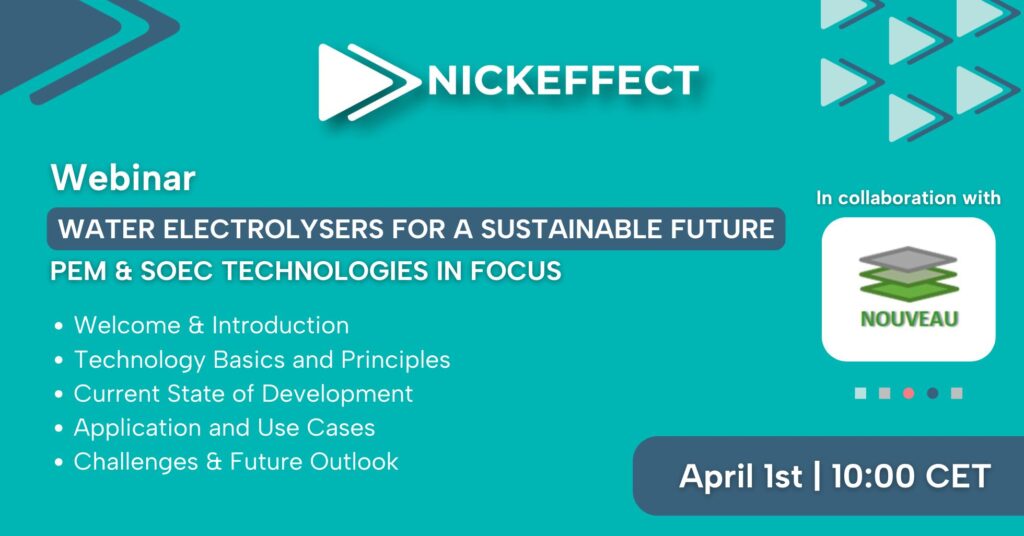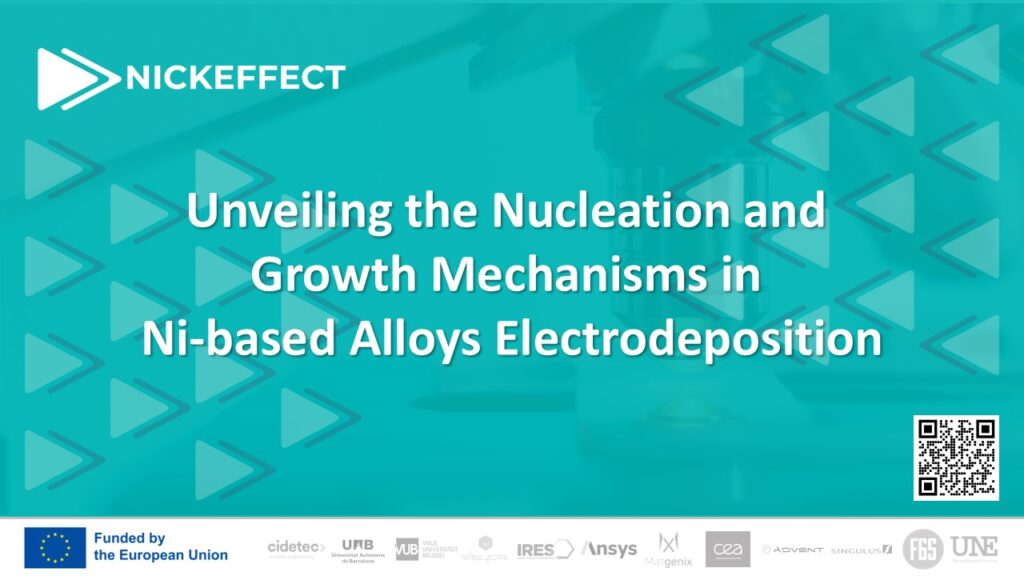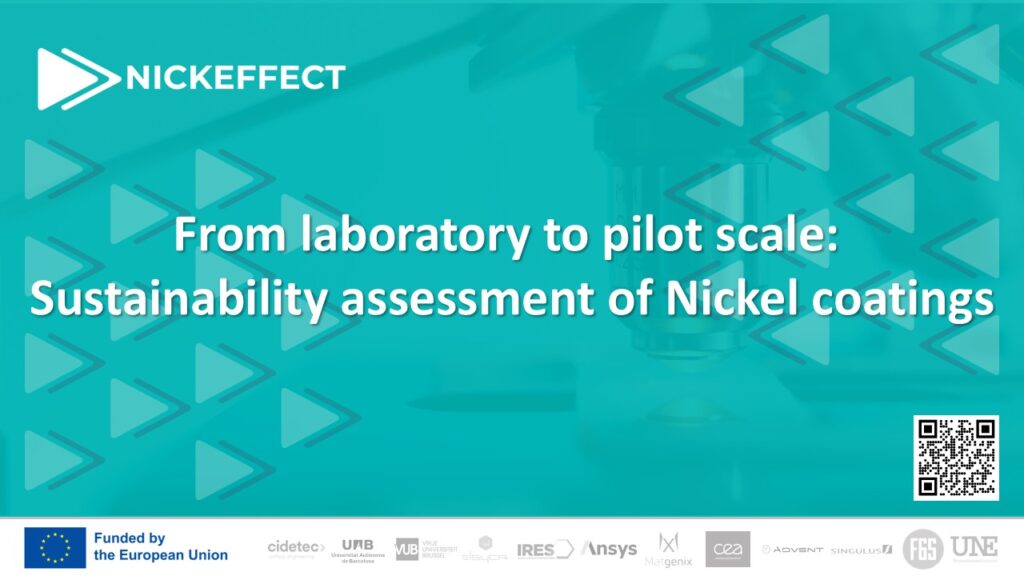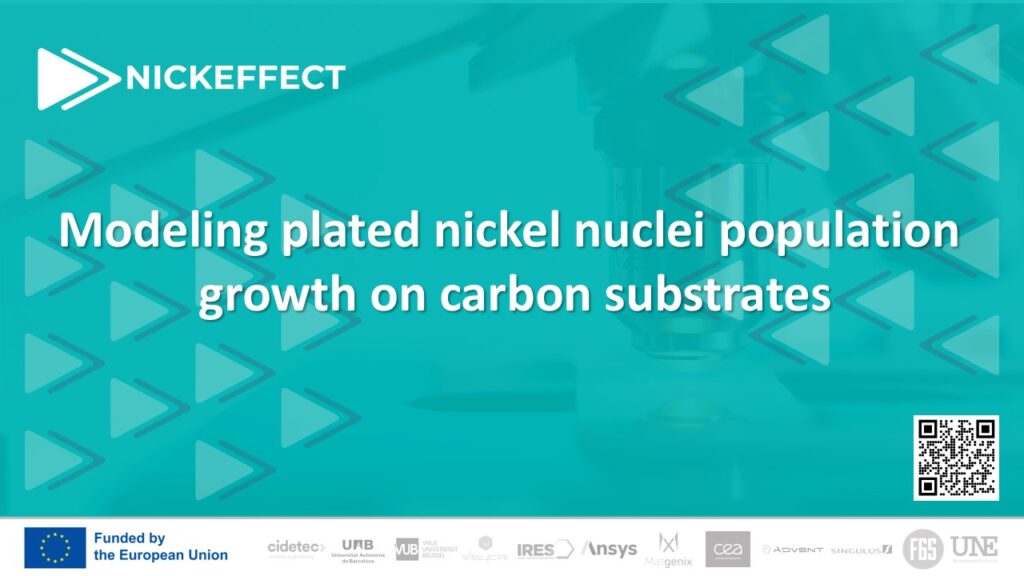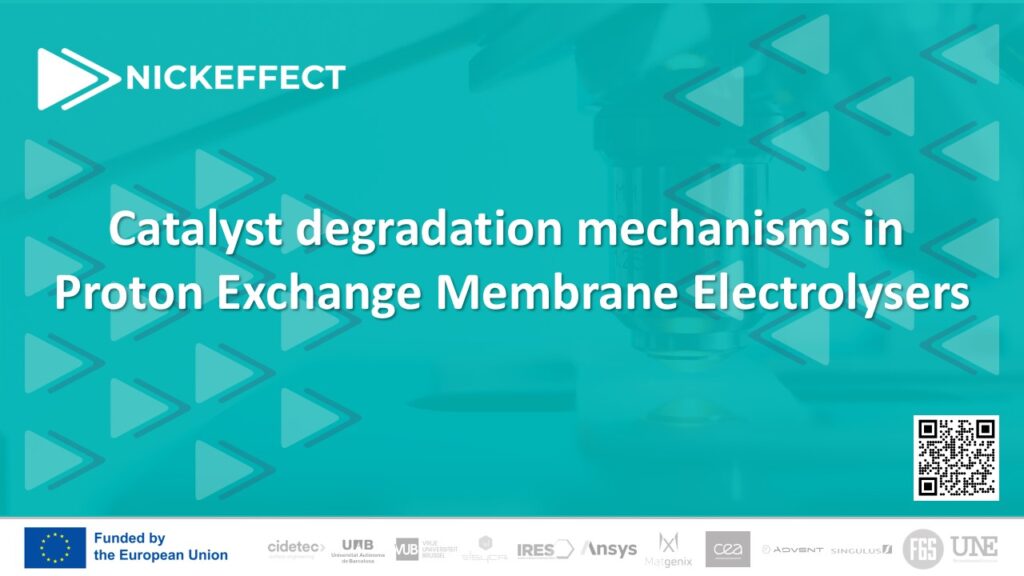News
On April 1st, NICKEFFECT and the NOUVEAU project joined forces to host an insightful webinar titled “Water Electrolysers for a Sustainable Future”. This event provided insights into the latest advancements […]
Electrodeposition plays a crucial role in the fabrication of advanced coatings and materials with tailored properties. Research on the electrochemical deposition of nickel-based alloys highlights its catalytic performance. Investigating the […]
The transition from laboratory-scale research to pilot-scale production is a crucial phase in developing nickel coating technologies. While these coatings are expected to provide excellent corrosion resistance, durability, and conductivity, […]
Since the NICKEFFECT projects aims at replacing platinum catalyst based PEM Fuel Cell (FC) cathodes by porous graphite electrodes that are covered with nickel alloy (nano-)particles, the plating process for […]
On December 10, the stakeholder meeting organized by the European Commission on “Driving EU prosperity: The future of Knowledge Valorisation” took place in Brussels, with live streaming broadcast. The program, […]
Hydrogen is recognised as a clean energy carrier that could play a key role in reducing global carbon emissions. In Proton Exchange Membrane Water Electrolysers (PEM WE), the hydrogen evolution […]

